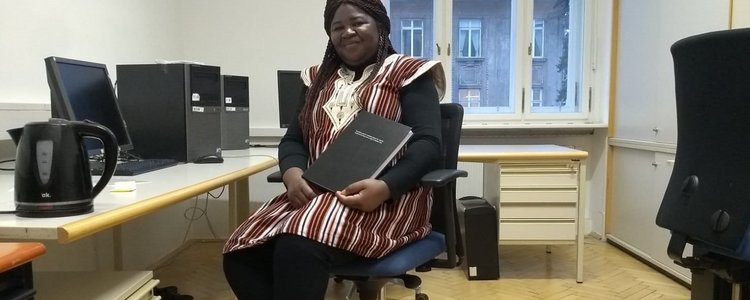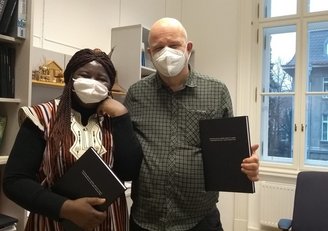The aim of the study was to identify the genomic regions which are responsible for the cattle’s body size and its resistance to sleeping sickness (trypanoresistance), a common disease in tropical Africa. The study was conducted in the southwestern region of Burkina Faso, in 27 villages from the Loropéni, Kampti and Bouroum-Bouroum department. It was supervised by Assoc. Prof. Dr. Gábor Mészáros from BOKU and co-supervised by Prof. Johann Sölkner, Dr. Maria Wurzinger, Dr. Pamela Burger, Dr. Amadou Traoré and Dr Albert Soudré. The results of this thesis will serve as basis for further characterization, conservation, and improvement strategies for purebred and crossbred cattle populations in Burkina Faso. It contributes to a better understanding of the mechanism of trypanotolerance and a suitable breeding strategy.
Despite being a mother of a little child, Bernadette managed to finish her thesis within a short time. Speaking about the secret of her success, she says “the key since the beginning of my studies has always been discipline, and rigor in my work. If I take the example of the period during the COVID-19 lockdown, I continued to work as if I were in university from morning to night”. In retrospect for her “the past years were a great experience even if it was not easy, I learned a lot of lessons for life that will allow me to face future difficulties in my research career” For her future she plans to continue the research which she has begun during her previous studies, to develop new project ideas and to look for funding in order to pursue her career.
Bernadette Yougbare is a former researcher at the Institute of Environment and Agricultural Research (INERA), Burkina Faso, Bernadette holds a doctorate degree in veterinary medicine and a master's degree in epidemiology from the Inter- State School of Science and Veterinary Medicine (EISMV) in Dakar, Senegal. She has also worked with international NGOs such as Veterinary Without Borders (VSF) and the High Commission for Refugees (HCR) to support refugees in their main breeding activities.

